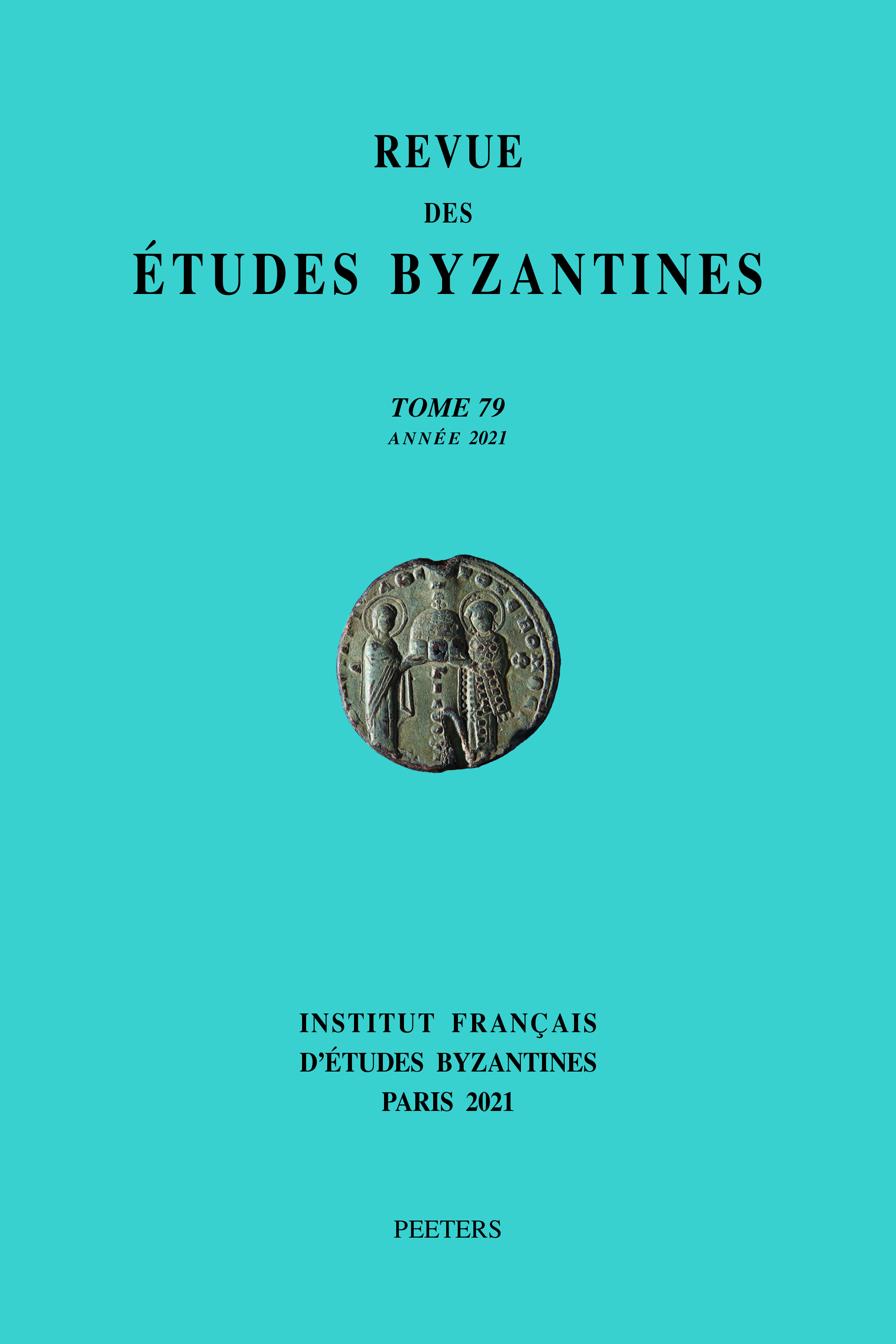 previous article in this issue previous article in this issue | next article in this issue  |

|
Document Details : Title: Ugo Eteriano e la controversia cristologica del 1166 Subtitle: Edizione dell'opuscolo De minoritate. Appendice: Edizione della lettera ad Alessio Author(s): PODOLAK, Pietro , ZAGO, Anna Journal: Revue des Études Byzantines Volume: 74 Date: 2016 Pages: 77-170 DOI: 10.2143/REB.74.0.3189076 Abstract : The doctrinal controversy on the passage of the Gospel 'The Father is greater than I' (John 14, 28), which took place during the reign of Manuel I and reached its peak in 1166, was one of the most animated debates of the 12th century and, at the same time, the occasion for both Greek and Latin theologians to publish some important Christological treatises. The aim of this article is not to re-analyze the entire question of the Council of 1166, but to offer a critical edition of some fundamental documents composed by the Latin advisor of Manuel Komnenos, Hugh Etherianus, a theologian from Pisa active in Byzantium in the second half of the 12th century. This dossier includes a major work, called De minoritate ac equalitate filii hominis ad Deum Patrem, in two books, and a letter to magister Peter of Vienna; as an appendix the reader will find the first critical edition of Hugh’s letter to Alexis, sub-deacon of the Roman Church, which is known as one of the most important documents produced in the cultural context of the Porretan theology. La controverse doctrinale sur le verset de Jean 14, 28, «Le père est plus grand que moi», qui connut son point culminant en 1166 à la cour de Manuel Ier Comnène, fut l’un des débats les plus acharnés du 12e siècle et donna lieu, de la part de théologiens grecs et latins, à la publication d’importants traités théologiques. Cet article n’a pas pour but d’analyser à nouveau la question du concile de 1166 dans son intégralité mais de donner l’édition critique de certains documents fondamentaux rédigés par Hugues Éthérien, conseiller latin de Manuel Comnène, théologien pisan actif à Byzance dans la deuxième moitié du 12e siècle. Ce dossier comprend une œuvre majeure, le De minoritate ac equalitate filii hominis ad Deum Patrem, en deux livres, et la lettre au magister Pierre de Vienne sur le même thème; dans une annexe, le lecteur trouvera la première édition critique de la lettre d’Hugues à Alexis, sous diacre de l’Église romaine, l’un des plus importants documents produits dans le contexte culturel de l’école porrétaine. |
|
